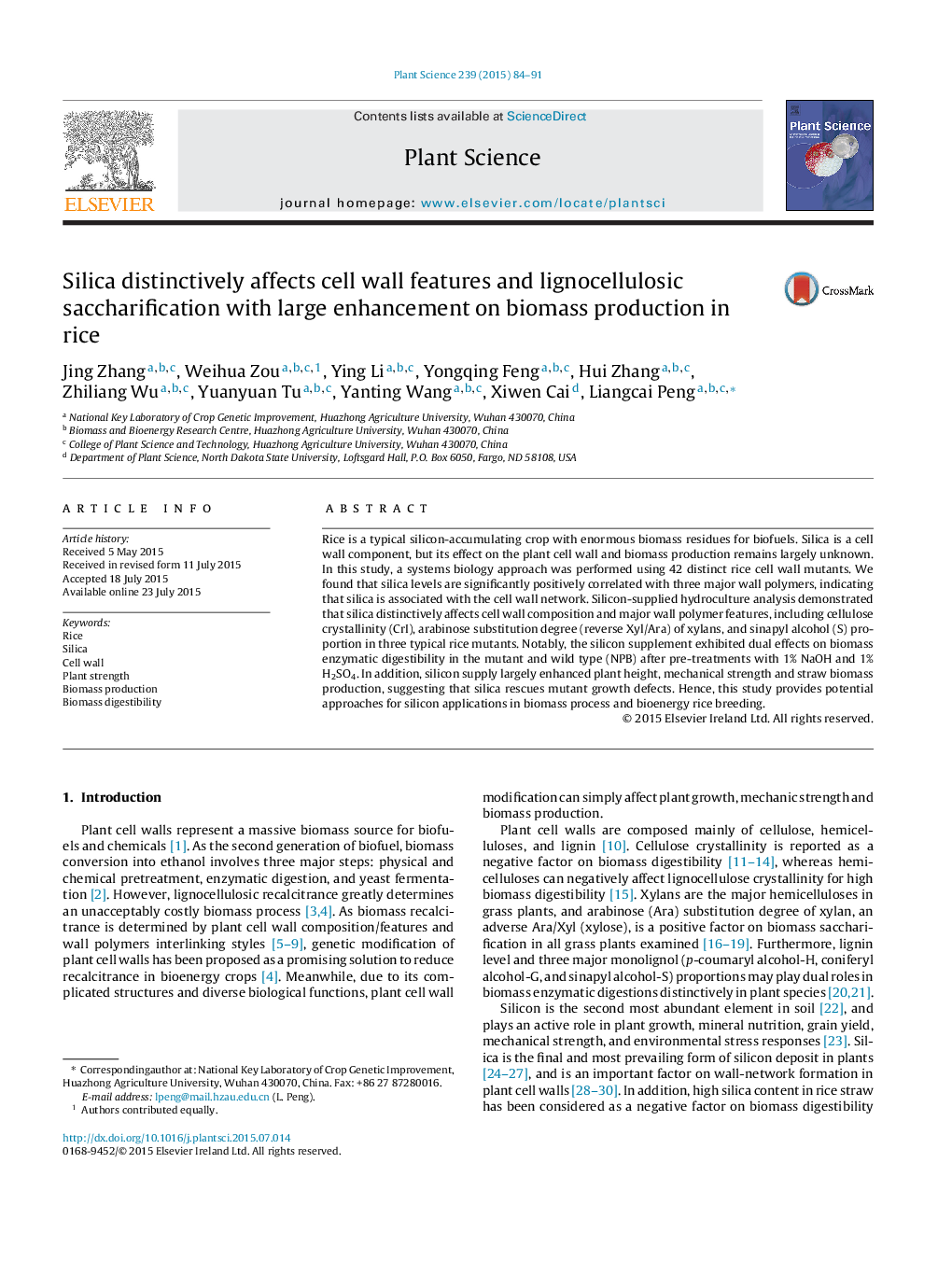| Article ID | Journal | Published Year | Pages | File Type |
|---|---|---|---|---|
| 2016984 | Plant Science | 2015 | 8 Pages |
Abstract
Rice is a typical silicon-accumulating crop with enormous biomass residues for biofuels. Silica is a cell wall component, but its effect on the plant cell wall and biomass production remains largely unknown. In this study, a systems biology approach was performed using 42 distinct rice cell wall mutants. We found that silica levels are significantly positively correlated with three major wall polymers, indicating that silica is associated with the cell wall network. Silicon-supplied hydroculture analysis demonstrated that silica distinctively affects cell wall composition and major wall polymer features, including cellulose crystallinity (CrI), arabinose substitution degree (reverse Xyl/Ara) of xylans, and sinapyl alcohol (S) proportion in three typical rice mutants. Notably, the silicon supplement exhibited dual effects on biomass enzymatic digestibility in the mutant and wild type (NPB) after pre-treatments with 1% NaOH and 1% H2SO4. In addition, silicon supply largely enhanced plant height, mechanical strength and straw biomass production, suggesting that silica rescues mutant growth defects. Hence, this study provides potential approaches for silicon applications in biomass process and bioenergy rice breeding.
Related Topics
Life Sciences
Agricultural and Biological Sciences
Plant Science
Authors
Jing Zhang, Weihua Zou, Ying Li, Yongqing Feng, Hui Zhang, Zhiliang Wu, Yuanyuan Tu, Yanting Wang, Xiwen Cai, Liangcai Peng,
